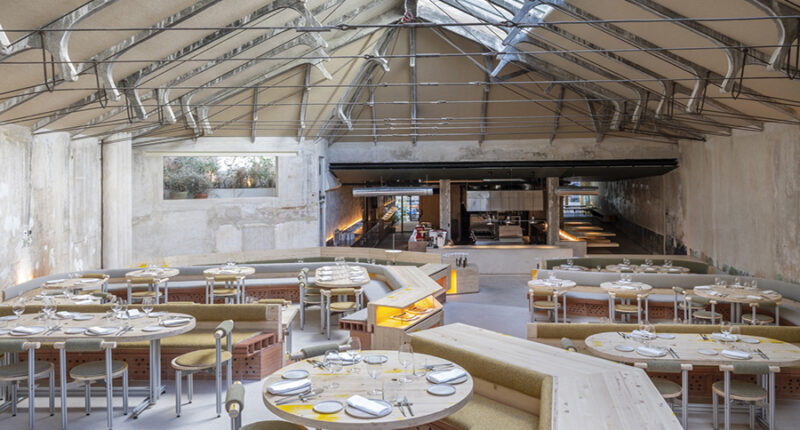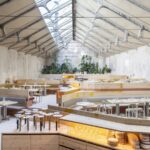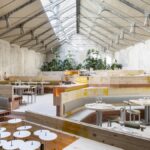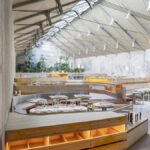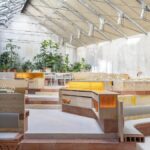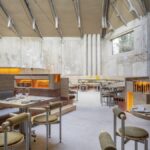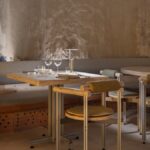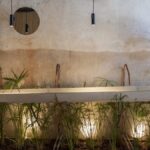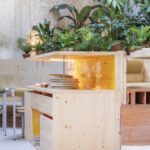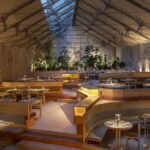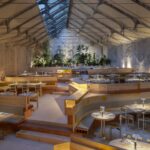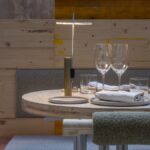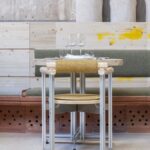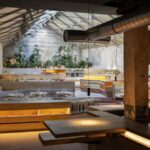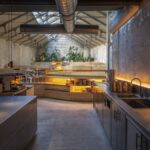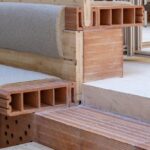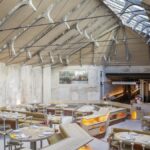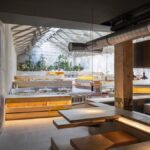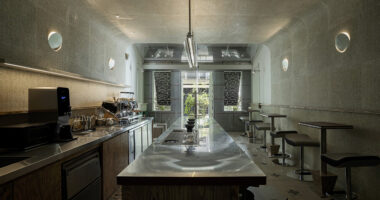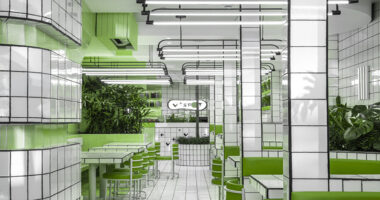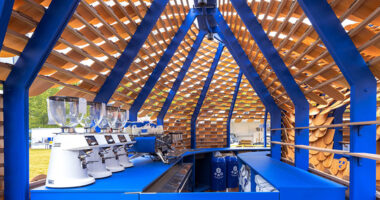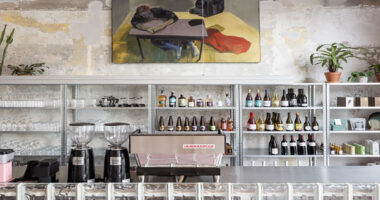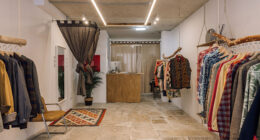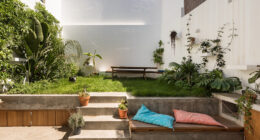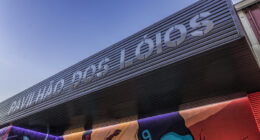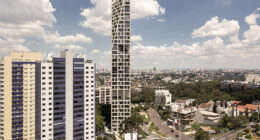TRAMO, located in Madrid, Spain, stands as the second initiative of Proyectos Conscientes, following Mo de Movimiento, with the aim of redefining urban recreation and promoting responsible consumption. Led by architecture studio Selgascano and designer Andreu Carulla, TRAMO embodies a collaborative effort to create a sustainable and innovative dining space.
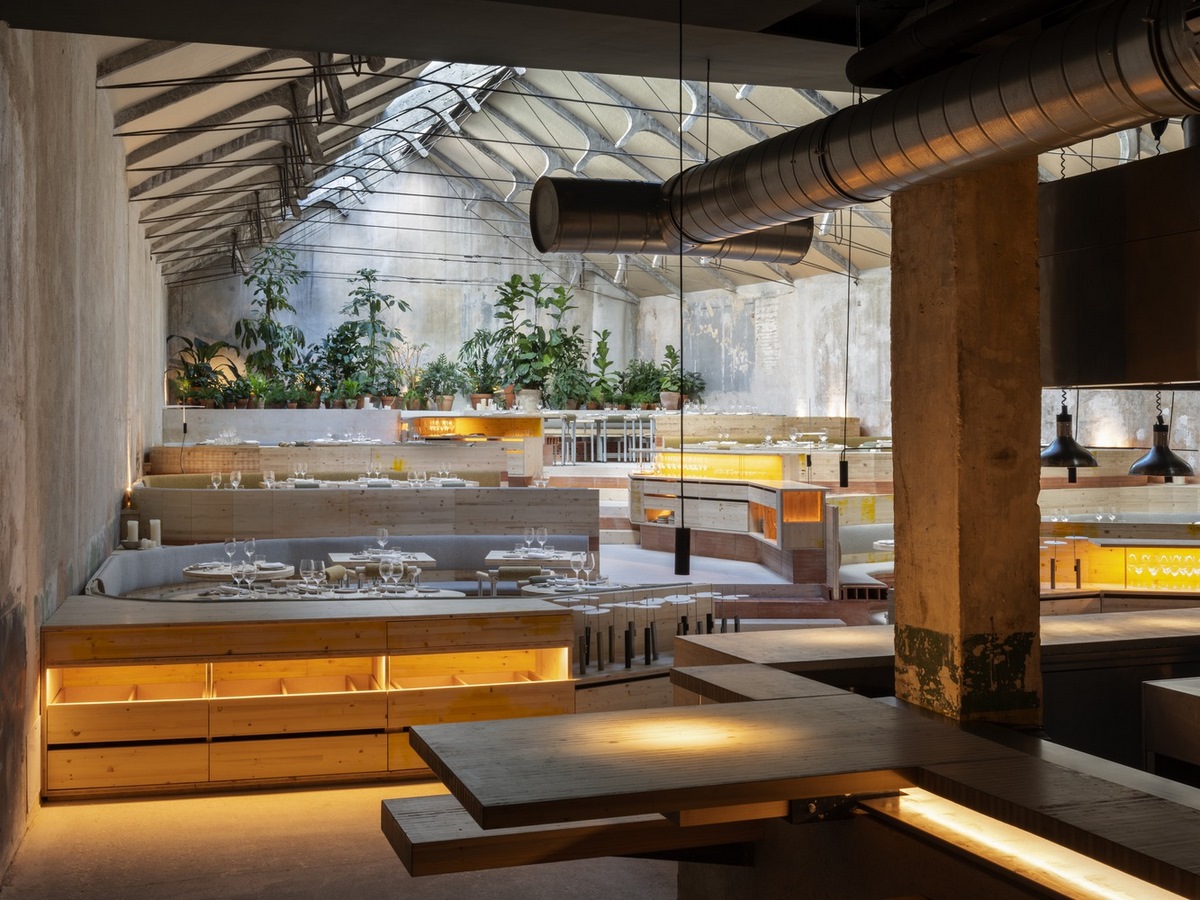
Design Concept
The design of TRAMO prioritizes respect for the original space, minimizing modifications to the existing structure. The venue features multiple levels, offering varied ambiances and perspectives, with the kitchen serving as both a visual focal point and a space generator. The ceiling’s structure showcases slender concrete trusses and steel cables, reminiscent of the architectural style of 1950s Madrid.
Sustainability Initiatives
TRAMO’s design emphasizes sustainability, rejecting environmentally toxic elements and avoiding the linear construction model of using and discarding materials. Closed circuits were established during the construction process to minimize waste, with recycled wood utilized for furniture and other elements throughout the venue.
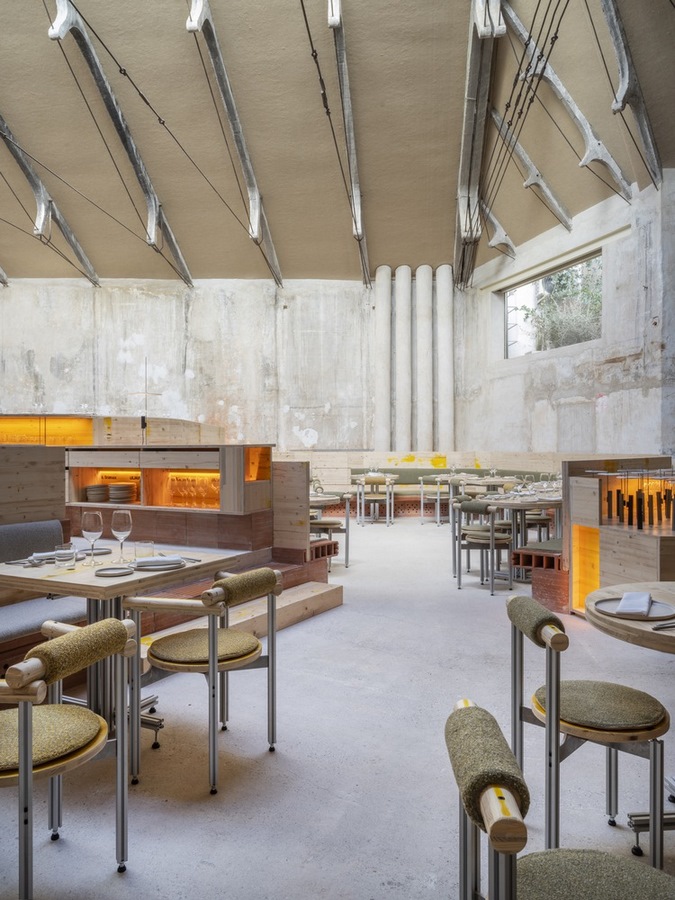
Modular Furniture and Staging
Andreu Carulla’s contribution to TRAMO includes modular staging and furniture, characterized by over one thousand ceramic modules crafted by artisans. These modules serve a dual purpose, acting as both thermal conduits and seating elements. Additionally, the restaurant features extruded aluminum furniture parts that can be assembled on-site, enhancing modularity and flexibility.
Energy Efficiency
TRAMO operates as an almost 100% energetically self-sufficient restaurant, generating green energy through a Power Purchase Agreement (PPA). The restaurant employs a misting system to regulate temperature and humidity naturally, while also utilizing various systems to recycle rainwater, sink water, and earth moisture.
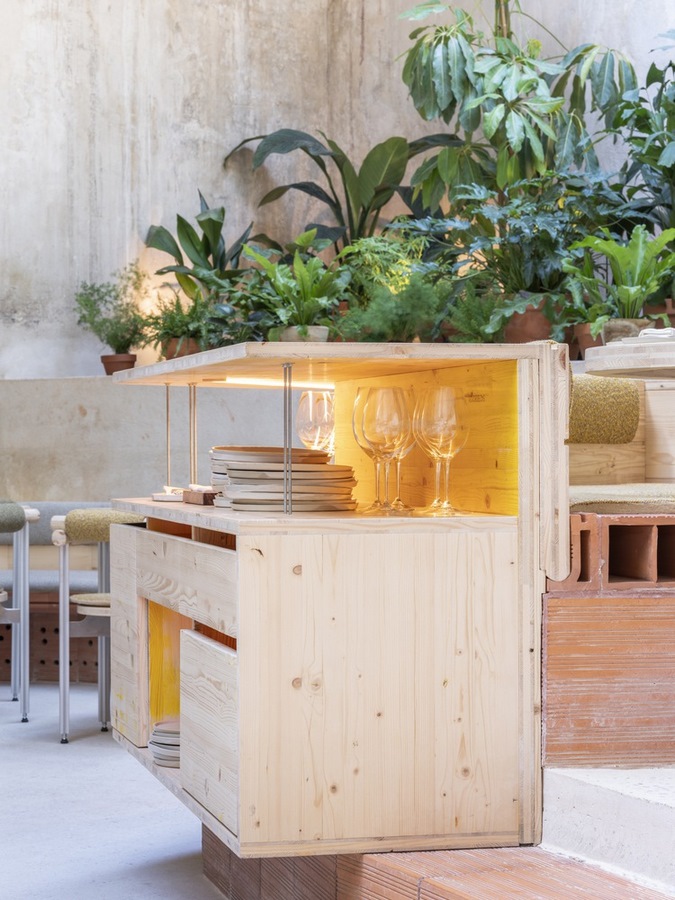
Acoustic Comfort and Material Reuse
Acoustic comfort is ensured through the use of Geopannel, recycled and pressed wool panels installed under the ceiling. Leftover materials from the ceiling installation are repurposed to cushion the continuous benches. Additionally, reclaimed textiles and construction materials are used for lamps and decorative elements, further enhancing sustainability.
Conclusion
TRAMO exemplifies a holistic approach to sustainable design and dining, integrating innovative architectural solutions with environmental consciousness. Through collaboration and careful consideration of materials and systems, TRAMO offers a unique and environmentally responsible dining experience, setting a new standard for urban recreation.
